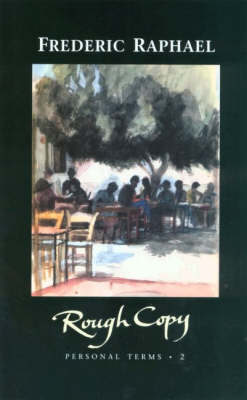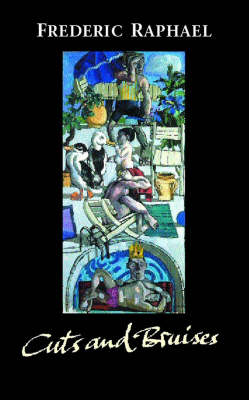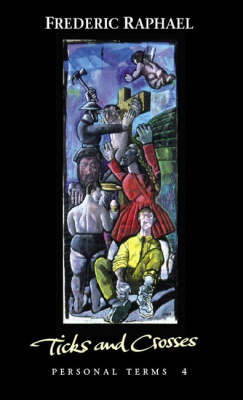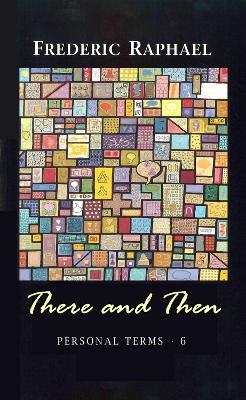Personal Terms
4 primary works
Book 2
The second volume of extracts from Frederic Raphael's notebooks (never a diary) covers the first five years of the 1970s. It describes and analyses a variety of experiences which are always opportunities for the precise definition of people, places and events. This is a writer's view of his own life, at once intimate and detached, a detachment made palpable by months spent in the French farmhouse which the Raphaels bought at the end of the booming 1960s. After several hectic and successful cinematic years, Raphael seems poised to direct and write many more films, but the slump of the 1970s leaves him happily free to concentrate once more on fiction. Nevertheless, the notebooks begin with a meeting with film producer Jo Janni and director Jonathan Miller and sketch many figures in the movie and literary world: Arnold Wesker, Norman Jewison, Herbert Ross, Vladimir Nabokov, Sean Connery and others. More attention is given, however, to less famous personalities, whose unguarded stories and characters prime fictional possibilities. Here we have an author, as the French might say, dans ses oeuvres: in the thick of creating who he is and what he wants to say, and how.
Book 3
The first volume of Frederic Raphael's notebooks, "Personal Terms", was greeted in the TLS as 'a small masterpiece'. With the publication of "Cuts and Bruises", the third volume, we can see the sequence unfolding into a major literary achievement. "Cuts and Bruises" concerns the 1970s, during which Raphael travelled widely (not least to Hollywood, which yields a mordantly sweet and sour account of figures such as Steven Spielberg, Martin Scorsese and John Schlesinger) and wrote the acclaimed television series, "The Glittering Prizes". Raphael is only incidentally concerned with the world of the famous, though, and has little interest in 'names' and gossip except to notice the discrepancies between public and private faces and to convey the texture of life around him. Greece remains an abiding passion, and the conduct of Greek friends during the last months of the Colonel's tyranny leads to surprising reflections on exile and return. Raphael's notebooks, never intended for publication, are exercises in candour, precise observation and wit. "Cuts and Bruises" adds to the growing impression that Raphael is creating an engrossingly readable, stylish and enduring chronicle of his times.
Book 4
The fourth volume of Frederic Raphael's notebooks, "Ticks and Crosses" covers the years 1976 to 1978 with the sharp wit and provocative intelligence that made the earlier books an acclaimed success. Raphael observes the inner workings of film studios with the cool acuity of a classicist; he records his thinking on philosophy, Jewishness, and Greece ancient and modern, with the tough irreverence of a Hollywood operator. Among the pleasures of "Ticks and Crosses" are an account of a farcical summer afternoon spent floating down a French river on a lilo in the company of Shirley Williams; an alarming trip up the wrong (and by no means dormant) volcano in Guatemala; meeting Nabokov; taking part in Any Questions with Enoch PowellA...The eminent are caught off-guard; aphorisms sparkle, and throughout, Raphael's love of French life and culture, his delight in the human comedy of social life, illuminate his unfolding chronicle.
Book 6
"We had been instructed to start promptly at six, since the hall was needed again at eight. We pushed through the curtained doorway, like instrumentalists without instruments, and onto the stepped stage. The audience was still coming in. Uncertain of our running time, and with no one to introduce us, I thought we had better start. I got as far as 'Byr - ' when Alan decided he did indeed need his glasses. He delivered his rehearsed ad lib, claiming that his vanity was second only to Byron's, and put on his specs." It is July 1981, and Alan Bates succumbs to a fit of nerves as he and Frederic Raphael attempt to carry off an underrehearsed performance at the Queen Elizabeth Hall. This wry glimpse behind the scenes of the London literary scene sits, in Raphael's notebooks, amid clear-eyed analysis of the riots and social unrest then erupting in Britain's cities under Margaret Thatcher's government. Compulsively readable, by turns mischievous and coruscating, this latest volume of Raphael's reflections casts light on a period that saw the beginnings of a decisive shift in British and American culture.
Along the way, there are finely incised pen-portraits of public figures ranging from Shirley Conran to Peter Sellers and from Robert Redford to Mary Whitehouse.
Along the way, there are finely incised pen-portraits of public figures ranging from Shirley Conran to Peter Sellers and from Robert Redford to Mary Whitehouse.



